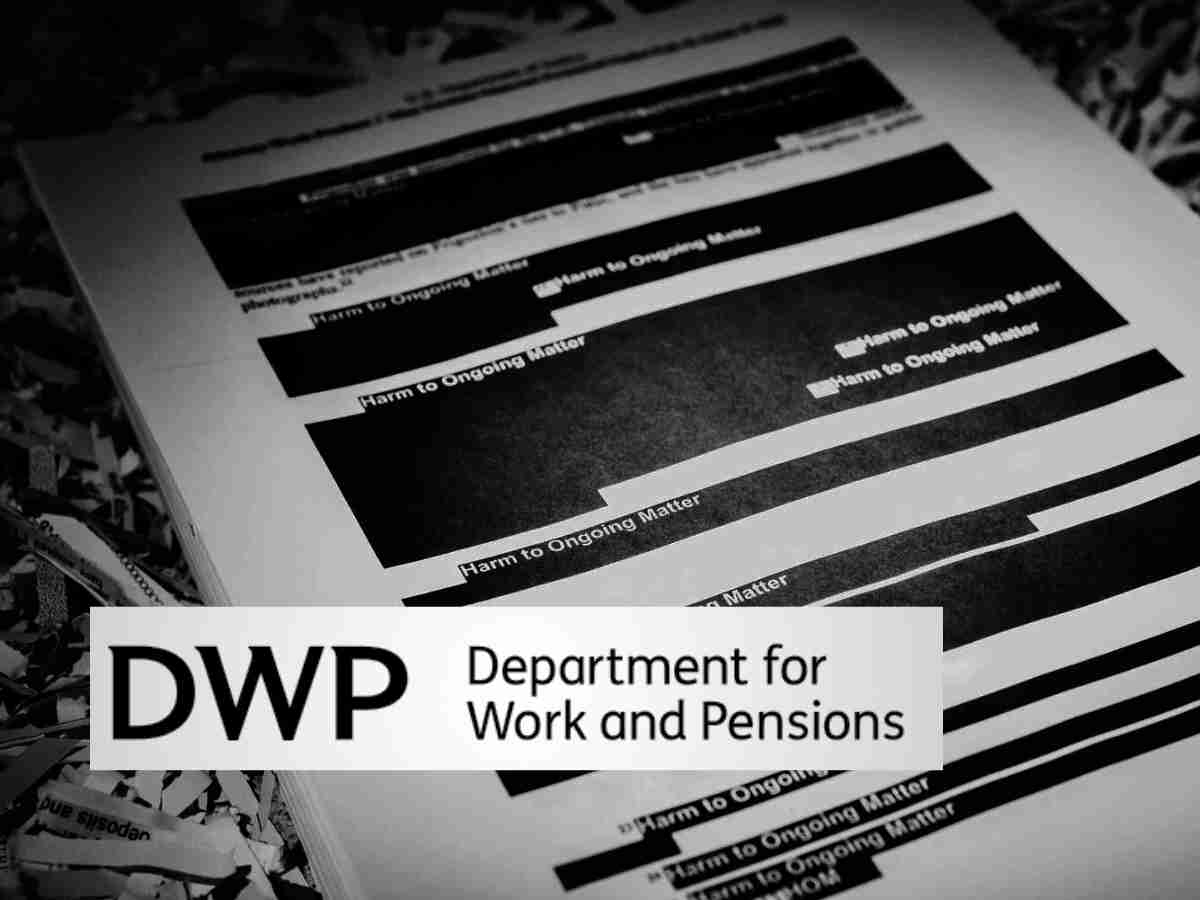The Department for Work and Pensions (DWP) sat on a report for nearly two years that evidenced how its own processes quite literally make claimants’ health worse. It comes just as a coroner has flagged the department’s actions during the inquest of a claimant who lay dead for nearly three years, alone in her flat.
DWP: buried reports, but not surprising news
As the Canary’s James Wright wrote, the new Labour Party government has released a cache of 30 DWP internal reports. The government claims the previous Tory administration sat on these instead of publishing them.
One report that already stands out is called:
Barriers to Accessing Health Support for PIP, NS [new style] ESA, and UC Claimants
The thrust of this report is about how the DWP can ‘support’ claimants to access treatment in the NHS. It involved interviews with 76 claimants during late 2022/early 2023. As an idea, this is problematic for several reasons:
- NHS services for chronically ill and disabled people are already broken.
- The DWP integrating itself with the NHS is a recipe for disaster, as the Canary has repeatedly documented.
- DWP services are already stretched at best – and at worst, actively working against claimants – without more points added to the process.
Failing processes highlighted again
However, it was the idea of DWP processes themselves which really stood out – not least how the claimants it interviewed viewed them.
As the DWP report itself says, it
highlighted those aspects of the claims journey that might adversely impact claimants’ health…
Support should consider the elements of the claims journey which are inadvertently impacting claimants’ health in a negative way too. For example, difficulties participants described around the complexity of the application form.
Linked to this, claimants stressed that they would not want any support offer to increase the complexity of the application process or add additional stages to the journey, which was already felt to be cumbersome.
The problem with this statement is that there’s nothing ‘inadvertent’ about the DWP making claimants even physically sicker or increasing their mental distress.
Prevention of Future Deaths reports
Less than a year ago in November 2023, a coroner issued a Prevention of Future Deaths report to the DWP over one claimant’s death. As the Guardian reported:
“Current DWP procedures may not be practical for those with mental health illness and can exacerbate symptoms,” she wrote. “I heard evidence that … the number of and length of DWP forms required to be completed can be overwhelming for someone with a mental health illness.”
She also expressed concern over long telephone queues to speak to a DWP adviser, and added that “having to travel long distances for appointments can be detrimental for those with a mental health illness”.
The DWP dismissed the coroner’s concerns. This came after numerous other coroners’ reports expressing the same sentiments. John Pring at Disability News Service documented seven other Prevention of Future Deaths reports in recent years – yet only took action on two.
Yet the buried DWP report released by Labour proves that the department knows it makes people sick. It states:
The application process itself was highlighted as lengthy and complex. This posed significant challenges, particularly for participants experiencing fatigue, poor mental health, memory difficulties, and learning disabilities. They described completing the form as physically and mentally exhausting, which for some led to heightened anxiety and, in some cases, had triggered periods of ill health.
Laura Winham: a horrific case in point
Only last week, a coroner was conducting the inquest into the death of Laura Winham. She was deaf and lived with schizophrenia. Laura may have died of starvation, and her remains went undiscovered for nearly three years. The harrowing inquest so far has heard of multiple failings by social services, Laura’s council, and police.
However, one telling line in the Guardian noted that the DWP:
sent Winham letters in February 2016 asking her to make a claim for the new personal independence payment, which replaced the disability living allowance (DLA).
They explained that she may be required to attend a medical. Winham responded to Woking council expressing alarm. She wrote: “I have only lived on my savings and DLA benefit,” the court heard. These concerns were not passed on to the DWP…
What the court hasn’t seemed to concern itself with is why the DWP failed to follow up on the fact that Laura, who must have been classed as a vulnerable claimant on its records, had not responded to its letters.
The departments complete failure to enact anything remotely looking like safeguarding is a systemic problem – as the Canary and John Pring at Disability News Service have repeatedly documented. It seems the stress of the DWP’s processes compounded Laura’s situation and may well have contributed to her lack of money, therefore her death.
DWP: intentional failures
Yet here we are, with another internal report that shows the DWP is making people’s mental and physical health worse. And here we are, seeing that not only did the DWP not act on it – but it actively buried it.
As the DWP report itself summed up, some research participants:
wanted DWP to focus on ensuring claimants would feel better supported through the claims process itself. They suggested that if DWP truly wants to improve wellbeing, it should focus on improving its own processes first.
Of course, none of this is by accident.
The Canary has repeatedly reminded readers that it is the DWP’s job to make people NOT want to claim. By making life for chronically ill and disabled people as hard as possible, the government ultimately saves money.
In 2016, the UN issued a scathing report on UK government violations of disabled people’s human rights. It noted that the DWP “processed rather than listened to or understood” disabled people during benefit assessments. The UN said these gave disabled people significant “anxiety” and “financial, material, and psychological hardship”.
Nothing has changed in eight years; the DWP knows this, and it is unlikely anything is changing any time soon.
Featured image via the Canary




